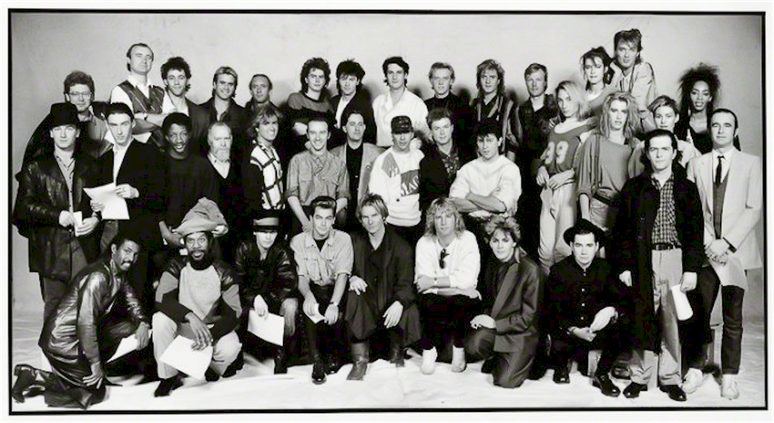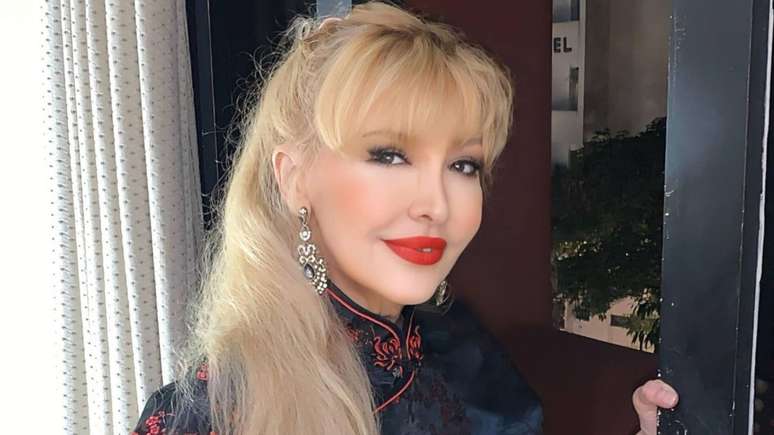‘Beyond the Wall’ is the first Iranian of the Venice competition, which also has ‘No Bears’, by Jafar Panahi
Beyond the wallin Vahid Jalilvandis the first of two Iranian feature films competing in 79th Venice Film Festival. the other is No bearin Jafar Panahi, who was recently arrested by his country’s government. But how to explain that, with all the control exercised there, there are two films, one of which by an imprisoned director, in one of the most prestigious international festivals?
‘Beyond the Wall’ by Vahid Jalilvand is in competition at the Venice Film Festival. Photo: Guglielmo Mangiapane / Reuters
For Jalilvand, the Iranian government has an ambivalent position on the issue. “On the one hand they are happy because, with the exhibition, the Iranian cinema it gains credibility and shows up. On the other hand, they are worried that they may say something against the government, “she said in an interview with the participation of the Estadio, to Venice. “But I think the works shown at festivals are more universal than they are about Iranian society. Other people who have seen this film think the story could take place in other places, including Europe.”
In the film, Ali (Navid Mohammadzadeh) has vision problems and is stuck at home. Leila (Diana Habibi), a fugitive from the police after being arrested in a protest for late payment, is hiding there. The danger is always near, because Ali seems to be constantly under surveillance. The tension builds and the director makes creative use of the flashback to show what happened and what is actually happening. In that closed environment there, Jalilvand contains the fear and oppression of an unjust society.
The idea for the film started almost as a vocation. Jalilvand was looking for a new project later No date, no signature (2017) when he listened to the audio of one of the leading Persian literature experts, speaking to his students at the university. “She begged students, teachers, anyone in any branch of art, to bring back the lost hope of the people. Not just in Iran, but around the world,” she said. “I already had the responsibility of writing a new film, and now I had the additional responsibility of my teacher asking me to return lost hope.”
The director began to walk the streets, paying attention to things written on the walls, reading books, listening to records. One night, at a friend’s house, he ended up reciting a poem about dreams. “That was the beginning of Beyond the wall. From there the words and the story began to flow “.
It was not difficult to obtain permission to shoot, even if it contained potentially problematic elements, such as protest, police action, surveillance. “Either they didn’t read it right or, because it was a bit surreal, they didn’t understand it,” said the director.
The difficulties were different. Despite being a very limited film, there are great scenes, such as the protest, with 800 extras, and the accident with the van. Due to the covid, the extras left after lunch. The solution was to record them each, for almost a month, and then, with the help of the visual effects, put them together, which took 20 months. A road of almost two kilometers was built to film the accident without disturbing the population.
To give the actor the feeling of being in a cell, the team couldn’t make any noise. “I didn’t even say action,” Jalilvand said. Navid Mohammadzadeh he also wore special lenses to simulate low vision. They just let a little light pass in the distance. So that the actor did not notice any movement, the team members wore clothes of the same color as the walls. “You will see all of this in the making-of video that we will publish,” said the director.
Source: Terra
Emily Jhon is a product and service reviewer at Gossipify, known for her honest evaluations and thorough analysis. With a background in marketing and consumer research, she offers valuable insights to readers. She has been writing for Gossipify for several years and has a degree in Marketing and Consumer Research from the University of Oxford.



![Everything starts here in advance: Laetitia finally returned … which awaits you from the week of 2025 to July 18, 2025 [SPOILERS] Everything starts here in advance: Laetitia finally returned … which awaits you from the week of 2025 to July 18, 2025 [SPOILERS]](https://fr.web.img6.acsta.net/img/10/fd/10fd5c34a7423d6ce6792d21bf31947a.jpg)




